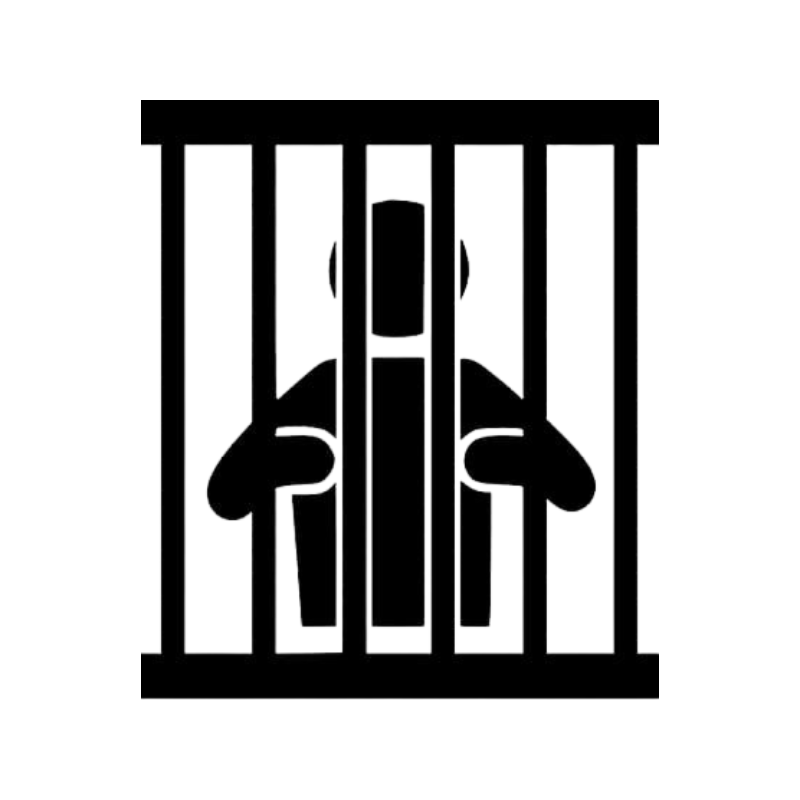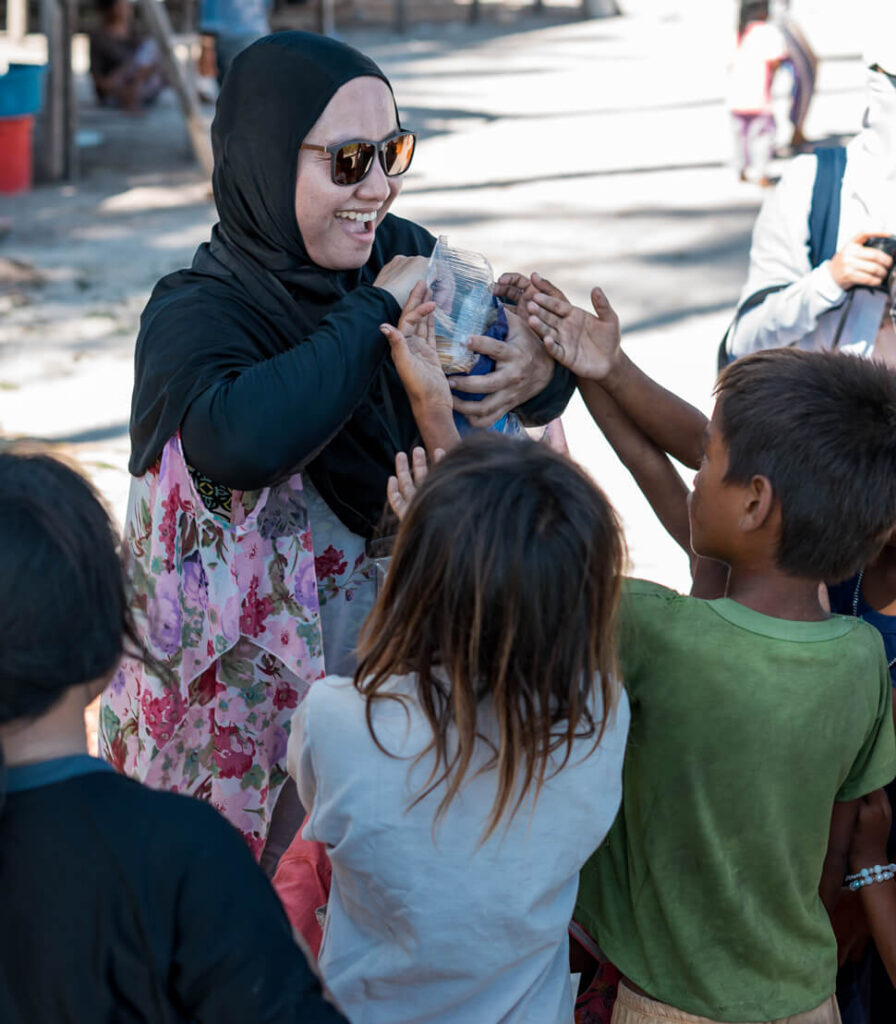Prison violations did not start on October 7
During the decades of occupation, the Israeli authorities have pursued a policy of systematic and widespread arrests against Palestinians. According to a UN report, the number of people arrested by Israel from 1967 to 2006 amounted to nearly 800,000 people, while the number of Palestinian detainees in Israeli prisons at the end of August 2023 (one month before the Battle of the Flood of Al-Aqsa) reached about 5,000 Palestinians, and the numbers are increasing daily, including more than a thousand administrative detainees without trial.
Several international reports issued by the United Nations and local and international human rights organizations stated that the Israeli authorities use physical and psychological torture against Palestinian detainees, which includes detaining them in crowded and unsanitary rooms, as well as sexual assaults, covering their heads and blindfolding them, forcing them to stand for long hours, tying them to a chair in painful positions, in addition to depriving them of sleep and punishing them with solitary confinement, as well as hanging them in various ways and other forms of torture and cruel and degrading treatment, which led to the martyrdom of 73 detainees between 1967 and 2020.
From 2001 until the end of 2023, the Israeli Ministry of Justice received more than 1,400 complaints regarding torture and ill-treatment of Palestinian detainees by the Shin Bet, which resulted in only 3 investigations being opened and no charges being brought.
Human rights groups have also accused Israel of using medical negligence as a tool of torture by depriving detainees of medical examinations and treatment and withholding vital medical information. The World Health Organization, in a report published in May 2023, also addressed the policies pursued by Israel against Palestinian prisoners and detainees, starting from the absence of unified protocols related to medical investigations and treatment in prison facilities, to the policy of medical negligence, especially for cancer patients and those with chronic diseases who do not receive the necessary treatments and medications.
The WHO also referred to what it described as unethical practices, including shackling sick detainees to hospital beds, the lack of proper medical follow-up upon their release, and the lack of proper care for prisoners on hunger strike.







The issue of Palestinian political prisoners has the attention and support of the Palestinian people. In order to achieve a real and meaningful peace process, the Palestinian prisoners detained by the Israeli military authorities must be released unconditionally. When the permanent status agreement is signed, the remaining Palestinian and Arab political prisoners must also be released. Until then, substantial and necessary improvements must be made to the lives of political prisoners languishing in the occupation’s prisons and detention centers.
The occupying power must implement its obligations under both the bilateral agreements it has signed and international law :
Palestinian Political Prisoners in Light of International Humanitarian Law
Palestinian prisoners are subject to the Third and Fourth Geneva Conventions of 1949 and the First Additional Protocol thereto. Although Israel has not acceded to it, it is obligated to implement its provisions under the framework of what is known as the principles of public international law. The issue of arrest and detention is one of the issues that can most reflect the occupation’s policy of using the law for political purposes. Since the beginning of the Israeli occupation, Israel has refused to apply the four Geneva Conventions of 1949 to the occupied territory, on the pretext that it did not occupy this territory from a sovereign state. However, it nevertheless acted based on the rules of the Fourth Convention, which allowed the occupation to enact legislation and establish military courts.
The occupation authorities established military courts, arrested hundreds of thousands of Palestinians and tried them based on military orders. As criminals, they never recognized that, for the most part, they fit the definition of a prisoner of war, and therefore they may not be tried, but rather must be released immediately after the end of hostilities (Article 118 of the Third Geneva Convention of 1949). The number of military orders exceeded 1,680 in the West Bank and more than 900 in the Gaza Strip, affecting all aspects of Palestinian civil and political life, in a manner contrary to what the rules of international humanitarian law permitted and authorized by the occupying state.
In contrast, the international community has repeatedly affirmed its rejection of Israel’s policy and position of not applying international law, especially the Four Geneva Conventions and international human rights law, to the occupied Palestinian territory. The United Nations General Assembly – the two special rapporteurs on human rights (the Human Rights Commission and the Human Rights Council) – issued dozens of resolutions that reaffirmed beyond any doubt that the legal framework governing the responsibility of the Israeli occupation over the occupied Palestinian and Arab territories is international humanitarian law, including the Four Geneva Conventions, international human rights law, and relevant agreements and covenants.
The United Nations Charter, the two International Covenants on Human Rights, dozens of General Assembly resolutions and decisions of the International Court of Justice have affirmed the right of peoples to self-determination. One of the most important resolutions on the Palestinian issue was General Assembly Resolution 2787 (26th session) dated 6 December 1971, which stated in its first paragraph: “[….] Affirms the legitimacy of the struggle of peoples for self-determination and liberation from colonial and foreign domination and foreign subjugation, particularly in southern Africa and in particular the legitimacy of the struggle of the peoples of Zimbabwe and Namibia [….] and the Palestinian people, by all means at their disposal in accordance with the Charter of the United Nations.”
International law also explicitly recognized the right of participants in a popular uprising from the population of a country that had not yet been occupied to spontaneously bear arms against the invading forces, and to enjoy the status of prisoners of war if they carried arms openly and respected international humanitarian law.
The occupation authorities did not abide by the guarantees for the protection of civilians, nor did they abide by the rules governing the rights and conditions of detainees. These guarantees and rules were addressed by international law, which emphasized them and obligated the occupying state to fulfill its obligations in dealing with prisoners and detainees held by it, including their detention within the occupied territories, preserving their rights and human dignity in receiving the necessary health care and appropriate food, enabling their families to visit them and maintain permanent human contact with them, preventing torture and ill-treatment, and not subjecting them to arbitrary detention, as well as prohibiting the absolute use of administrative detention orders in accordance with Article (78) of the Fourth Geneva Convention. The arbitrary arrests of Palestinian citizens constitute a violation of the legal guarantees related to the prohibition of arbitrary detention, which were guaranteed by international human rights law, through Articles (9) of the Universal Declaration of Human Rights of 1948, and Articles (9) and (10/1) of the International Covenant on Civil and Political Rights of 1976.
The rules of international humanitarian law confirm that there is no intention to impose on the inhabitants of the occupied territory the duty of obedience and loyalty to the occupying authorities, as Article 45 of the Regulations of Land Warfare attached to the Hague Convention of 1907 stipulates that “the population may not be compelled to take an oath of allegiance to the hostile power.” Several rules in the Third and Fourth Geneva Conventions confirm, for example, that, when determining a punishment, the state detaining the person concerned must take into account that he is not one of its nationals.
The occupying state did not recognize the conformity of the Geneva Conventions in the occupied territories. Israel has persisted in enacting racist legislation. These are some of the laws and draft laws discussed and approved by the Israeli Knesset (parliament) regarding prisoners during the past four years: the law targeting minors and imprisoning and trying those under the age of fourteen, the law increasing the sentences against child stone throwers, the law increasing the minimum penalty for stone throwers in Jerusalem, the law of force-feeding prisoners on hunger strike, the law of executing prisoners, the law of combating terrorism, the law of nationality, the law of body and strip searches without suspicion, the law exempting intelligence from documenting the investigation, applying Israeli criminal law in the occupied territories in favor of settlers, the law of convicting Palestinians without suspicion, the law of canceling early release, the law of preventing amnesty, the law of expelling the families of prisoners and martyrs who carried out operations, the law of deducting sums of money from tax revenues equal to the size of the dues paid by the Palestinian government to the families of prisoners and martyrs, the law of depriving prisoners of education, the law of recognition by Israeli civil courts of the decisions of military courts in Israel, the law of preventing Visits by prisoners belonging to Palestinian organizations that hold Israelis, a law that allows the detention of the bodies of martyrs, and not least the law not to fund treatment for the wounded and prisoners.
Administrative detention:
Administrative detention is a procedure used by the Israeli occupation forces to detain Palestinian civilians without a specific charge and without trial, which deprives the detainee and his lawyer of knowing the reasons for the detention, and this prevents the formulation of an effective and influential defense. The administrative detention order against the detainee is often renewed multiple times.
The Israeli occupation forces practice administrative detention using detention orders ranging in duration from one month to six months, renewable without specifying the number of times. The detention orders are issued based on secret information that the detainee or his lawyer has no right to see. They are usually used when there is insufficient evidence under the military orders imposed by the occupying state on the West Bank to arrest Palestinian citizens and bring them to trial.
Administrative detention as practiced by the occupying powers is illegal and arbitrary detention. According to international law, “administrative detention is only carried out if there is a real threat to the national security of the state,” and therefore cannot be unlimited or for a long period of time. Administrative detention violates international humanitarian law, international human rights law, and Article (78) of the Fourth Geneva Convention.
Corpse detention and number graves:
The occupation authorities are holding the bodies of martyrs, whether in cold refrigerators or in unknown graves bearing numbers, as a collective punishment or revenge for the families of the martyrs, to this day.
There are 68 Palestinians missing since the beginning of the occupation until today, and their fate is unknown and the occupation denies any information about them. The number of martyrs in the cemeteries of numbers exceeds the documented numbers based on the information circulated about the cemeteries and the number of graves inside them.
The Fourth Geneva Convention and Additional Protocol I to the Geneva Conventions, which are part of customary international law binding on all States, explicitly require that those killed in hostilities be buried with respect and in accordance with procedures appropriate to their religious culture, and, as soon as circumstances permit, that they provide full details and information about them, protect and maintain their graves, facilitate access to the graves of the deceased by their families and make practical arrangements for that, and facilitate the return of the remains of the deceased and their personal effects to their homeland.
Israeli practices in this regard violate the decisions of Israeli courts, including the Supreme Court of Justice, which considered that the principle of human dignity applies to corpses as it does to the living and extends to include the families and relatives of the victims.
House arrest:
House arrest is the imposition of rulings by an Israeli court requiring a person to remain for specific periods inside his home, or in the home of a friend or relative, in a forced manner. The occupation may extend house arrest for new periods, and anyone who violates it is subject to additional penalties.
House arrest is an arbitrary measure that violates the rules and provisions of international humanitarian law, and all international charters and norms, most notably the Convention on the Rights of the Child of 1989 and its Optional Protocols, and the four Geneva Conventions of 1949 and their two Additional Protocols of 1977.
The most prominent violations of prisoners’ and detainees’ rights in the occupation’s prisons:
Although Israel has signed human rights treaties that prohibit torture, including the International Convention against Torture, Israeli law does not prohibit torture, let alone criminalize it, nor does it set a specific definition of the crime of torture, despite international demands.
Although the Israeli Supreme Court issued a ruling in 1999 prohibiting the “use of brutal methods” absolutely, it kept some exceptions such as the principle of “ticking bombs” i.e. those suspected of knowledge of potential “terrorist” operations.
The United Nations Committee Against Torture expressed its concern about the possibility that Shin Bet investigators might use this principle to justify torture of detainees, especially since the law of this agency grants immunity to its members for any action they take within the limits of their work.
The Israeli security services use many systematic methods to torture Palestinian detainees inside interrogation rooms, including the use of the method of hanging, sleep deprivation, loud music, beating, shaking, threats of physical exploitation, violent hand and foot restraints, exposing the accused to bright lighting and pressure on the neck, and exposing the prisoner to extreme heat at times and cold at other times. These methods are considered to be in violation of international laws and norms. Article 2 of the Universal Declaration of Human Rights states that: “No exceptional circumstances whatsoever, whether a state of war or a threat of war, political instability or any other public emergency, may be invoked as a justification of torture.”
The Israeli intelligence services deliberately use various methods of torture in order to influence prisoners and extract confessions from them by force, which constitutes a violation of the rules of international public law and international conventions.
The Israeli prison administration and detention centers for Palestinians deliberately do not provide sufficient medical staff to treat the diseases that afflict the detainees. The absence of medical supplies inside Israeli prisons increases the severity of the deterioration of the health conditions of the prisoners, as the prison administration equates a patient with a headache with a patient with heart disease or pneumonia by giving each of them one painkiller (Acamol) with medical advice to drink water.
With this behavior, Israel violates Article (91) of the Geneva Convention, which states the following:
“Every place of detention shall be provided with an appropriate clinic, supervised by a qualified physician, where detainees shall receive all the medical care they require, as well as an appropriate diet.”
Palestinian statistics have recorded a number of martyrs from the prisoner movement who lost their right to life as a result of medical negligence inside the detention centers.
The Israeli Ministry of Defense has decided to allocate an amount equivalent to ($500) annually to cover all the living requirements of a single prisoner or detainee, including food, drink, clothing, and other needs. With the increase in the number of Palestinian prisoners and detainees in Israeli occupation prisons, the need for living requirements has increased in larger quantities, and the main reliance of Palestinian prisoners to meet their living needs inside prisons has become on external aid provided by human rights organizations that sponsor prisoners’ affairs and on what can be provided by families through visits to those who are allowed to visit.
The Israeli occupation authorities follow a policy of solitary confinement of Palestinian prisoners and detainees in Israeli prisons as a means of pressuring the prisoner in order to extract confessions from him, or as a punishment for any action he commits that constitutes, from the Israeli point of view, a violation of the system followed within the prison. Isolation is often carried out without legal justification, which negatively affects the psychological and physical condition of the prisoner.
The transfer of Palestinian detainees within the territories of the occupying state is considered a violation of the rules of international humanitarian law, especially the Fourth Geneva Convention. Their transfer also means depriving them of family visits. The International Committee of the Red Cross’s program for family visits to detainees has been subject to severe restrictions, especially since the beginning of the Al-Aqsa Intifada at the end of September 2000. The occupation forces have announced the cancellation of the visits program several times, then resumed it after many months. This is a violation of the provisions of Article (116) of the Fourth Geneva Convention, which states that: “Every interned person shall be allowed to receive visitors, especially relatives, at intervals and as frequently as possible.”
In her report on arbitrary arrests, the Special Rapporteur on human rights in the Palestinian territories, Francesca Albanese, referred to the long-standing Israeli policy against Palestinians, which has deprived them of their freedom for generations, in addition to their lack of enjoyment of the most basic rights granted to them by international law. She pointed out that Israeli measures extending over decades of the occupation of the Palestinians in the occupied territories have transformed the Palestinians into a “population stripped of civilian status” and thus deprived them of any legal protection. Thus, the Palestinian is always vulnerable to arrest because he is a source of threat to the existing system based on domination, so that the arbitrary deprivation of freedom and cruel and degrading treatment become a general Israeli policy directed against them in order to tighten control over them.
Several international reports issued by the United Nations and local and international human rights organizations stated that the Israeli authorities use physical and psychological torture against Palestinian detainees, which includes detaining them in crowded and unsanitary rooms, as well as sexual assaults, covering their heads and blindfolding them, forcing them to stand for long hours, tying them to a chair in painful positions, in addition to depriving them of sleep and punishing them with solitary confinement, as well as hanging them in various ways and other forms of torture and cruel and degrading treatment, which led to the martyrdom of 73 detainees between 1967 and 2020.
From 2001 until the end of 2023, the Israeli Ministry of Justice received more than 1,400 complaints regarding torture and ill-treatment of Palestinian detainees by the Shin Bet, which resulted in only 3 investigations being opened and no charges being brought.
Human rights groups have also accused Israel of using medical negligence as a tool of torture by depriving detainees of medical examinations and treatment and withholding vital medical information. The World Health Organization, in a report published in May 2023, also addressed the policies pursued by Israel against Palestinian prisoners and detainees, starting from the absence of unified protocols related to medical investigations and treatment in prison facilities, to the policy of medical negligence, especially for cancer patients and those with chronic diseases who do not receive the necessary treatments and medications.
The WHO also referred to what it described as unethical practices, including shackling sick detainees to hospital beds, the lack of proper medical follow-up upon their release, and the lack of proper care for prisoners on hunger strike.

Donations are allocated to provide direct humanitarian support, including food, healthcare, and education, as well as support for community empowerment projects.
Yes, donors can choose to allocate their donations to specific areas such as education, health, or emergency relief as they wish.
We operate transparently and follow accurate documentation methods to ensure that aid reaches those who deserve it, and regular reports on aid distribution are available.